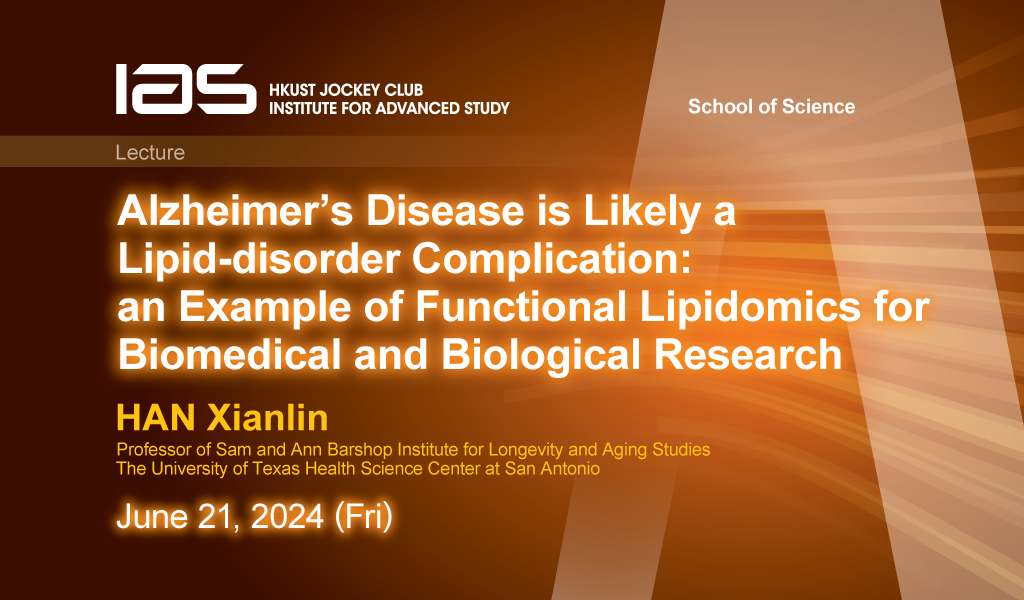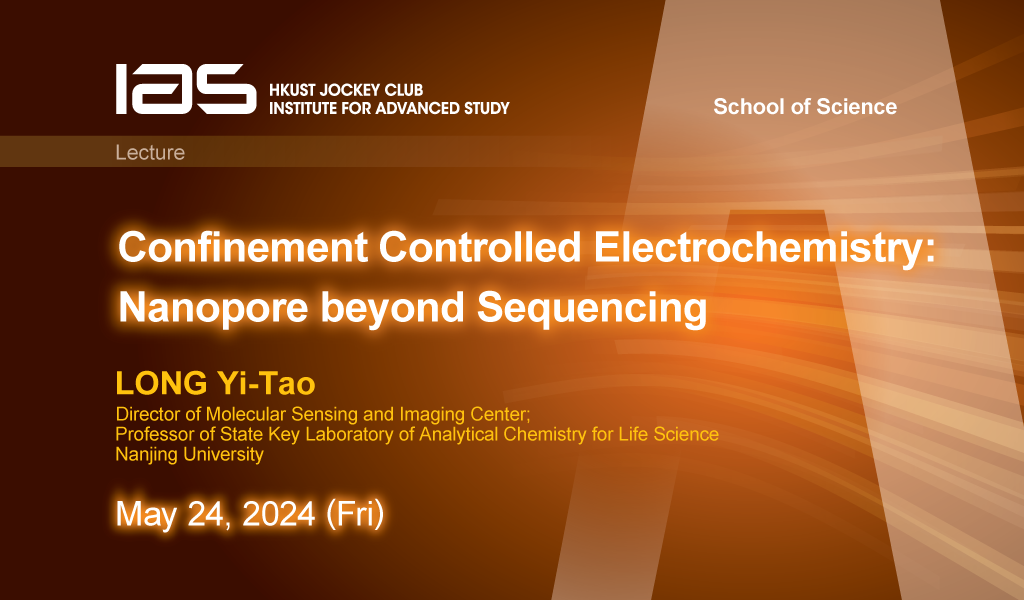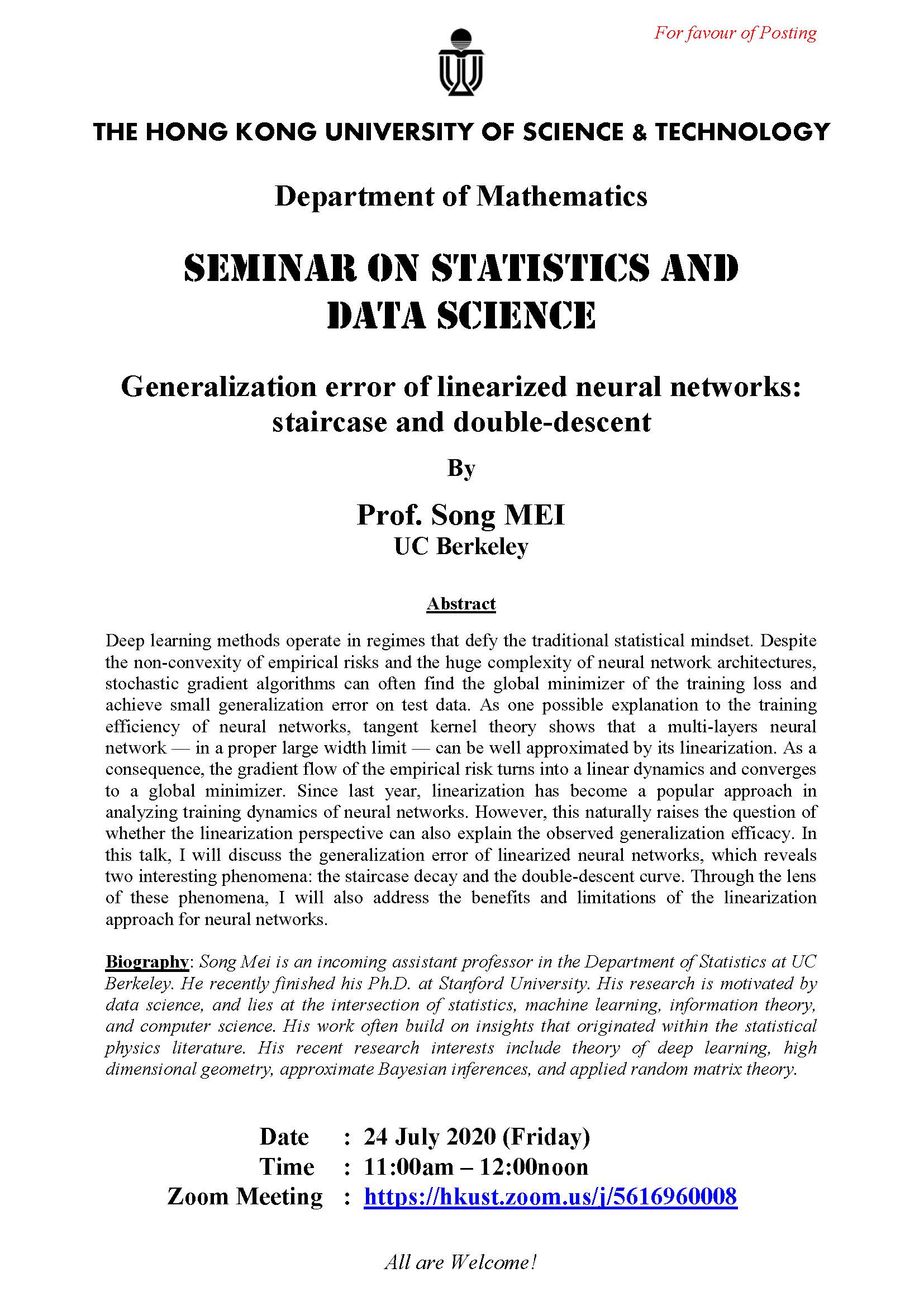Deep learning methods operate in regimes that defy the traditional statistical mindset. Despite the non-convexity of empirical risks and the huge complexity of neural network architectures, stochastic gradient algorithms can often find the global minimizer of the training loss and achieve small generalization error on test data. As one possible explanation to the training efficiency of neural networks, tangent kernel theory shows that a multi-layers neural network — in a proper large width limit — can be well approximated by its linearization. As a consequence, the gradient flow of the empirical risk turns into a linear dynamics and converges to a global minimizer. Since last year, linearization has become a popular approach in analyzing training dynamics of neural networks. However, this naturally raises the question of whether the linearization perspective can also explain the observed generalization efficacy. In this talk, I will discuss the generalization error of linearized neural networks, which reveals two interesting phenomena: the staircase decay and the double-descent curve. Through the lens of these phenomena, I will also address the benefits and limitations of the linearization approach for neural networks.
24 Jul 2020
11am - 12pm

Where
https://hkust.zoom.us/j/5616960008
Speakers/Performers
Prof. Song MEI
UC Berkeley
UC Berkeley
Organizer(S)
Department of Mathematics
Contact/Enquiries
mathseminar@ust.hk
Payment Details
Audience
Alumni, Faculty and Staff, PG Students, UG Students
Language(s)
English
Other Events

21 Jun 2024
Seminar, Lecture, Talk
IAS / School of Science Joint Lecture - Alzheimer’s Disease is Likely a Lipid-disorder Complication: an Example of Functional Lipidomics for Biomedical and Biological Research
Abstract
Functional lipidomics is a frontier in lipidomics research, which identifies changes of cellular lipidomes in disease by lipidomics, uncovers the molecular mechanism(s) leading to the chan...

24 May 2024
Seminar, Lecture, Talk
IAS / School of Science Joint Lecture - Confinement Controlled Electrochemistry: Nanopore beyond Sequencing
Abstract
Nanopore electrochemistry refers to the promising measurement science based on elaborate pore structures, which offers a well-defined geometric confined space to adopt and characterize sin...

